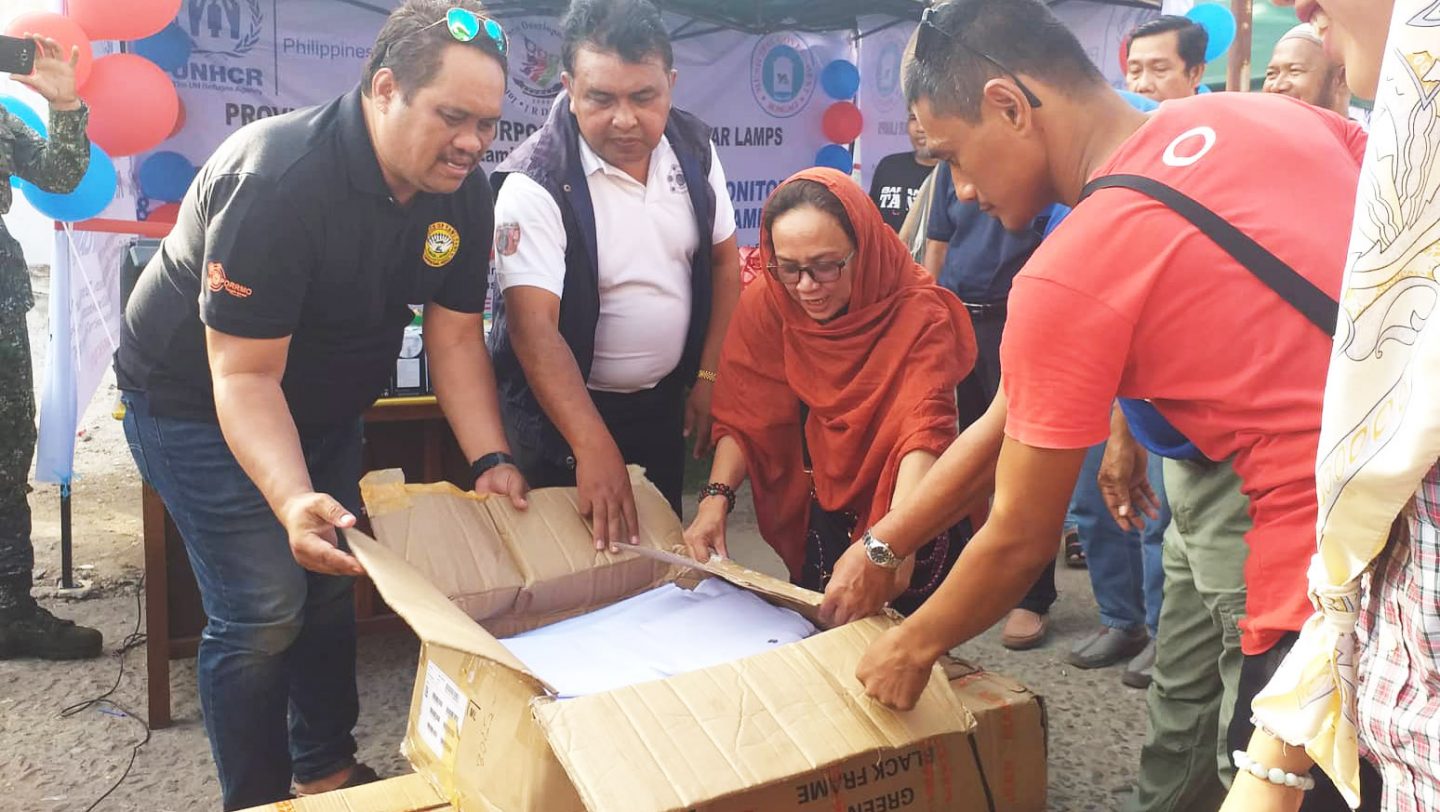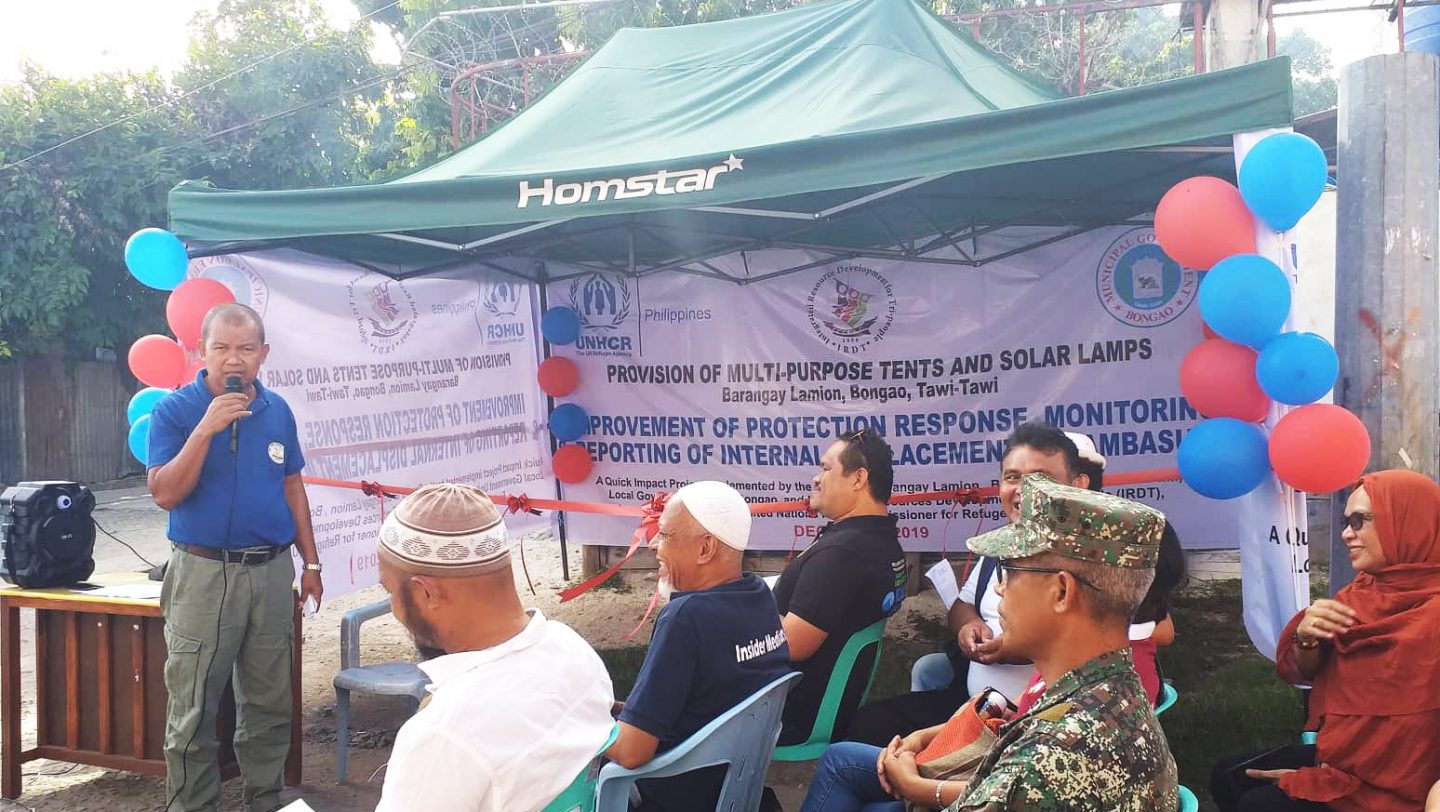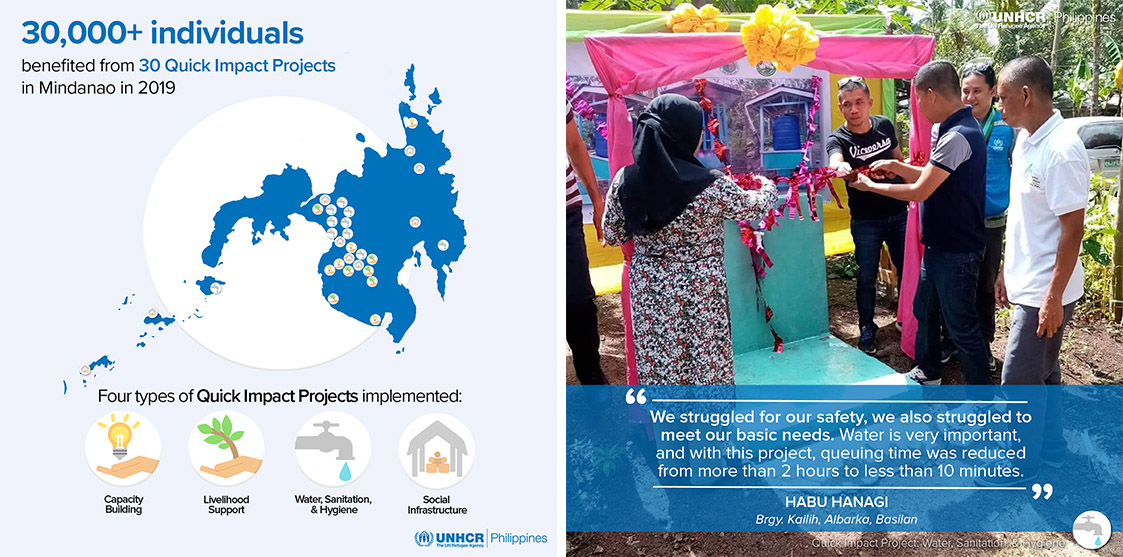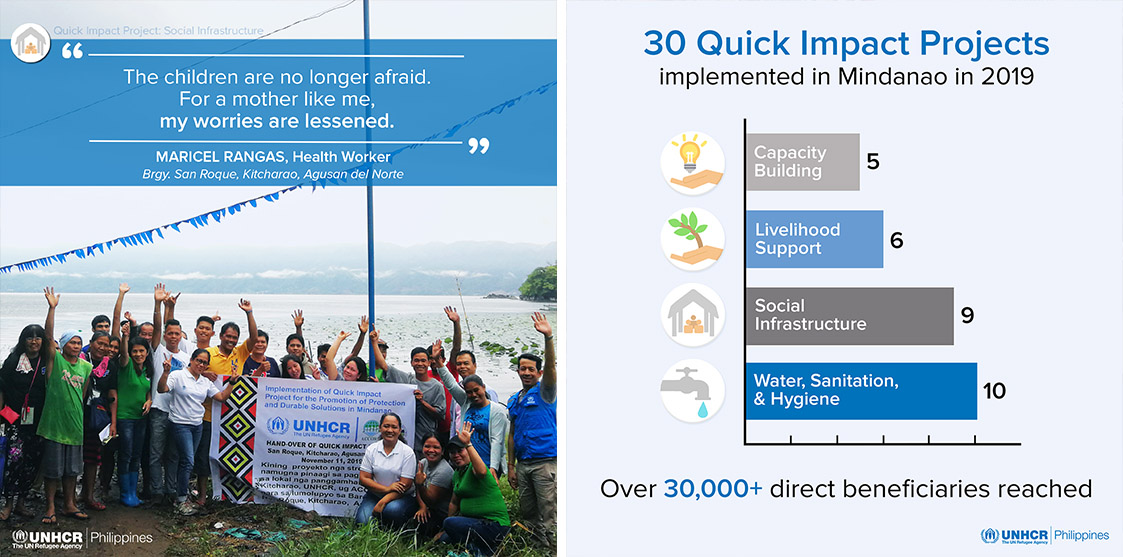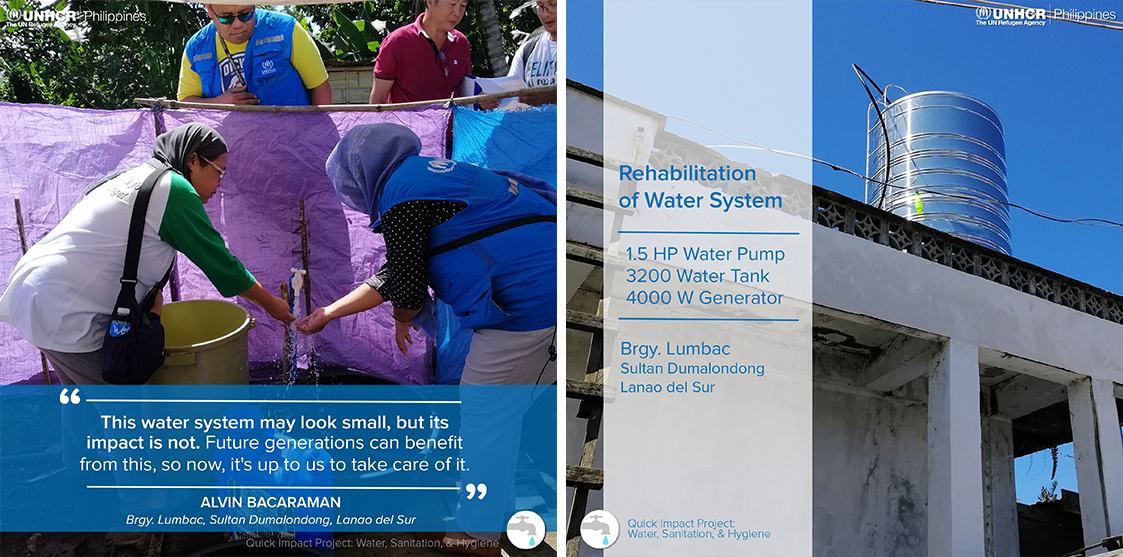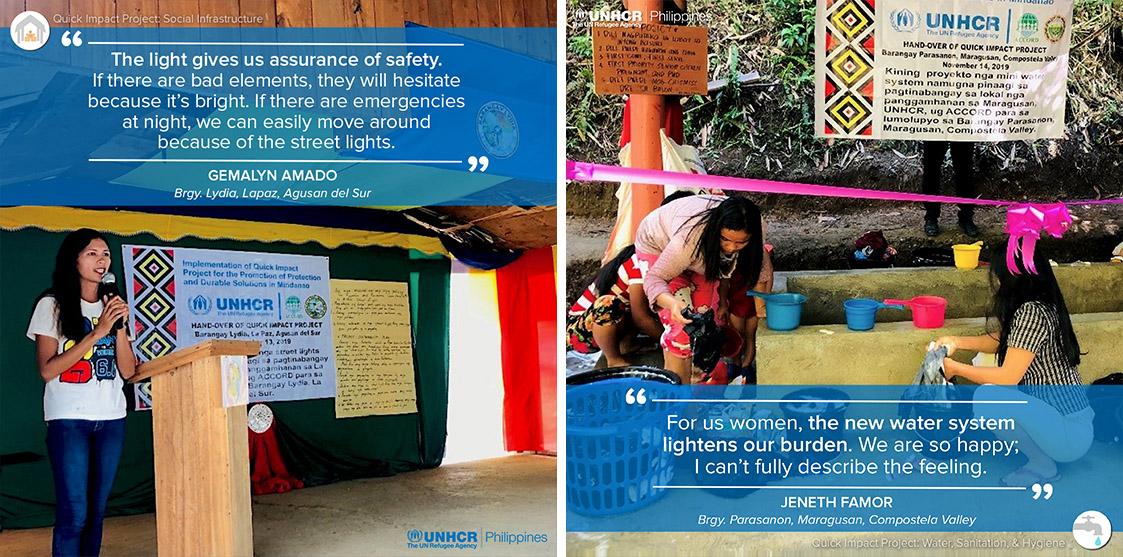Reaching the most vulnerable families in Mindanao
With you, we helped hard-to-reach communities in Mindanao prepare for disasters, and promoted confidence and self-reliance among the most vulnerable families.
Mindanao is a land that has long weathered conflict and calamity. The families in Bongao, Tawi-Tawi know this all too well. Their island province is located at the southernmost tip of the Philippines, and is one of the most remote, hard-to-reach areas in the country. Year after year, aside from dealing with armed conflict, they face the risk of being hit by natural calamities, which can devastate homes and displace hundreds of people. For the people of Mindanao, the series of earthquakes that occurred in October 2019 have put even more lives at risk, adding new displacement and suffering to a people who have already endured so much.
In time for ushering in the new year, UNHCR Philippines in partnership with the local government units and Integrated Resource Development for Tri-people Inc (IRDT), reached out to this remote community in Tawi-Tawi with the equipment and skills necessary for disaster preparedness and resiliency. Tents, tarpaulins, and other core relief items that will help them prepare for disasters were delivered. Juvy Amirul, a 56 year-old community member from Brgy. Lamion, expressed her gratitude during the turnover ceremony.
“If we experience calamity again, we are more prepared.
We don’t have to run anywhere and look for tents.”
This is only one of 30 Quick Impact Projects (QIPs) that UNHCR Philippines implemented in 2019, reaching more than 30,000 individuals. QIPs promote confidence and self-reliance among the most vulnerable families, and build peace among the internally displaced and their host communities.
The Long Road to Recovery
Much has already been done, but close to half a million individuals are still displaced in Mindanao, having fled their homes due to armed conflict, situations of generalized violence, and natural disasters. More than 130,000 of those individuals have been displaced for more than 180 days. For these men, women, and children, the road to rebuilding and recovery is a long journey – one that is filled with many challenges.

Aside from Quick Impact Projects, UNHCR Philippines delivered life-saving aid to 52,279 individuals in Mindanao in 2019, and reached 711 more through through capacity building sessions. This ensures that families have sustained assistance that will help them prepare and rebuild their futures, months or years after the emergency strikes.
The road may be long, but thanks to the generosity and support of our donors and partners, UNHCR Philippines is able to reach the most vulnerable families and ensure that they will not only survive, but also thrive and rebuild their lives in dignity and safety.
Share on Facebook Share on Twitter

